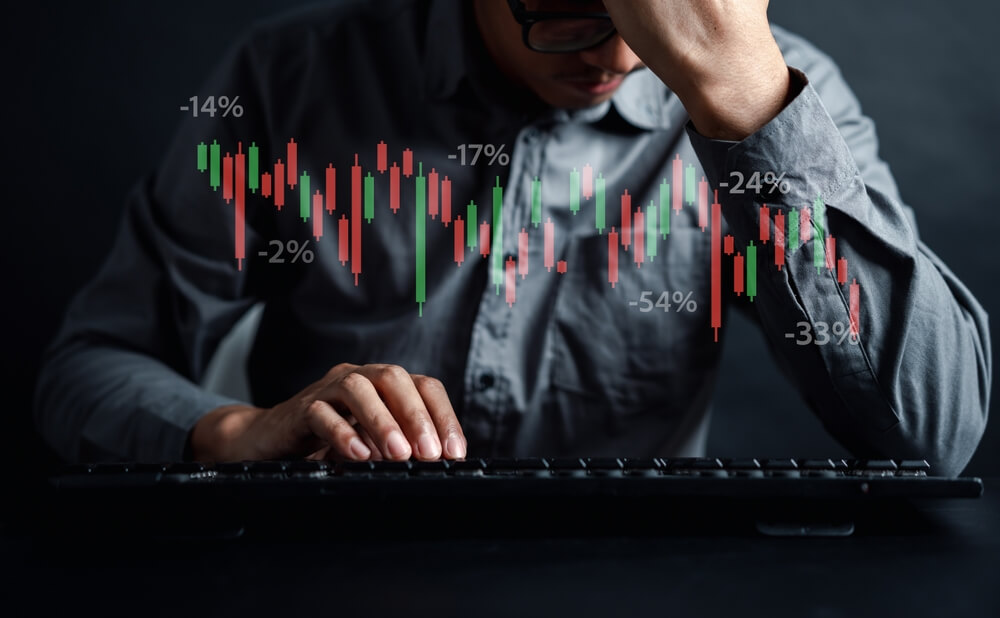
Winning Mindset: Key Strategies For Mindset Trader
Developing a winning mindset trader is a critical element in becoming a successful trader in the financial markets. Trading psychology plays a pivotal role in handling market conditions and making effective trading decisions. Often, traders face challenges like losing trades, which test their ability to manage emotions like fear and greed. To trade successfully over the long term it’s not just about mastering trading strategies; it’s about excelling in risk management and consistently making good trading choices.
A winning trader understands that losing money is part of the journey. The key lies in managing their emotions and learning from each experience. Decision-making in trading, coupled with goal setting, is fundamental for progress. Patience and perseverance are vital attributes helping traders navigate through the ups and downs of market conditions. Moreover, refining market analysis skills and continually developing a robust trading plan are essential steps in this journey.
Key Characteristics of a Mindset-Winning Trader
Top traders share key psychological characteristics that set them apart. First, they are comfortable with taking risks and can handle losing trades, understanding that uncertainty is part of trading.
They don’t expect guaranteed returns like in a savings account. Second, these traders quickly adapt to changing market conditions.
They don’t stubbornly stick to their market analysis if the price action suggests a change is needed. Third, they maintain discipline and objectivity in their trading, no matter how the market impacts their account balance.
Furthermore, successful traders manage their emotions, avoiding getting overly excited or despondent about their trades.
They also practice self-discipline, following strict money and risk management rules, and not gambling recklessly. Finally, they recognize the importance of trade management, accepting the risks and the likelihood of being wrong in their trade choices.
They understand that managing a trade effectively after entering it often determines their profits and losses more than the initial decision to enter the trade.
Mindset trader: self-assessment

For a trader, self-assessment is crucial to understand personal strengths and weaknesses. Adaptability and flexibility in trading strategies become necessary tools in an ever-changing market.
Generally, trading requires more than just technical knowledge; it demands a winning mindset trader where psychological preparedness meets strategic planning and execution.
Every trader, both professional and individual, must have surely asked themselves the following question one day: What makes a good trader? Is this the profit made over the course of a year? Its analytical capacity or the number of screens it uses?
Well no. The real performance of a trader is measured by his consistency throughout his “career” as an investor. It seems easy to say, but being consistent in your trading is the holy grail of every trader. And to be consistent, there are several areas to master.
Focus on your analysis and trading strategy.
Being a good trader means capitalizing on price movements consistently over time. A trader who achieves 100% performance in one month is, from experience, less likely to be regular than a trader who seeks a return of 20% per year. Of course, what a dream to say that we have doubled our capital in the space of 30 days. But it is precisely this greed that pushes many inexperienced traders to ruin.
Focusing exclusively on profit rather than on method and market analysis is the biggest obstacle to a trader’s consistency. How many of us have ever gotten out of a winning or losing position because the PnL (Profit and Loss) of it was important or uncomfortable?
Once again, this is an error. It is not the PnL that should dictate your trade exits; rather, it is the price movements of the asset you are trading. The PnL is only the result of a number of points or pips.
Overexposure is the number one reason retail traders lose money. This greed, often fueled by access to high leverage, is destructive and will seriously harm your profits over time. The market being what it is, variable and unpredictable, opening a position that is too large for your risk tolerance is likely to cause you to close a position in the red.
Of course a (too) large position on a market which executes exactly the scenario you had envisaged will take your PnL to altitudes never reached before, but this again if the position is cut at the right time. Too large a position will focus your attention more on your profit or loss than on the chart itself.
Once again, this is a big mistake and not the attitude of a good Trader. Rely on your chart marking rather than your current profit or loss in order to exit a trade intelligently.
Accept your losses to move forward.

A significant loss on an overexposed position risks putting you in the dynamic of wanting to “recover quickly”. This mentality is deadly for your trading because, the vast majority of the time, you will botch your trades and take some that you would never have taken normally.
After a loss, it is important to take a break and absorb the financial loss in order to have a clear mind for your next trade. This last point is very important for a good Trader.
The golden rule of investing: don’t lose money
And it’s Warren Buffet who says it. When you lose 20% of your capital, you will need to record a performance of 25% to make up for this loss. Worse still, a loss of 50% of your capital will require 100% performance to make up for the loss.
Hence, the importance of not losing capital. Following this instruction to the letter is impossible. As we have mentioned, losses are a normal occurrence in the trader’s journey; the goal here is not to avoid them at all costs but to limit them in number and amplitude.
Learn from your mistakes to progress.
In order to be regular over time, it is important to note the trades you have taken or use the statements provided by your broker. This action will allow you to study your trades and allow you to reflect on your strategies.
When you are a Trader you are your own boss, with its advantages and disadvantages. You work when you want, on the asset you want.
The problem is that no one checks and can, therefore, give you feedback on your work. When you take a step back to really analyze your trading, you can think critically about it and look for improvements.
A good trader is always improving, becoming better. For this, he studies macro, micro, technical analysis and everything that can be useful to him in order to become better. This is the only way to truly progress.
He will even use the demo account to practice. The demo account is often forgotten by traders but is a tool that will allow you to test your strategies or even take a break from real trading while remaining active without risking capital. If, after a series of losses, you feel weakness in
Your trading, do the demo for a week, if everything goes well and you find the state of mind of a good trader, go back to reality.
Know how to manage your stress in trading.

The profession of trader has the reputation of being a stressful activity. Although this statement has some truth, the good trader will always want to limit his stress. In aviation, we talk about two types of stress: moderate stress and dangerous stress.
Moderate stress is a level of stress that will make you alert and ready to react to an emergency situation; it’s good stress. Dangerous stress is that which will cause an increase in your breathing rate, faster mental exhaustion and hasty decision-making.
Stress in trading comes from knowing the future is unknown. We don’t know where the market is going to go, and that worries us.
The best way to remedy this is to frame your position before passing it. You will, therefore, calculate your position size, your profit target(s) and your exit point in the event of invalidation.
By doing this, you will know from the outset what your potential maximum loss will be, and this will give you ease and peace of mind when trading. Once you have established your plan, before taking a position, stick to it.
This last point is the quality of the good Trader; He trusts himself. Taking a loss while sticking to your plan is acceptable and part of the game. Taking a loss because you didn’t stick to your plan is likely to put you in a bad state of mind.
Conclusion of mindset trader
In trading, it is important to bring things back to the essentials. You have to simplify the task. It is not because you have ten technical indicators that you are going to be the best. Use what you know, test and adopt a method that works for you.
The trader knows that everything will play out over time. He knows how to recognize when he is wrong and knows how to trust himself when he is right. This is the quality of a good Trader, his intellectual honesty.
The market is a battlefield where no one can predict how it will unfold. We do not want to anticipate the major movements of this one; that is not the goal, and above all, it is impossible. The goal is to capitalize on price movements.
Your discipline will determine your success in trading. If you are not disciplined for each trade you take, you will lose money. Remember, anyone can be a trader, but becoming a good trader is only for disciplined and motivated people.




